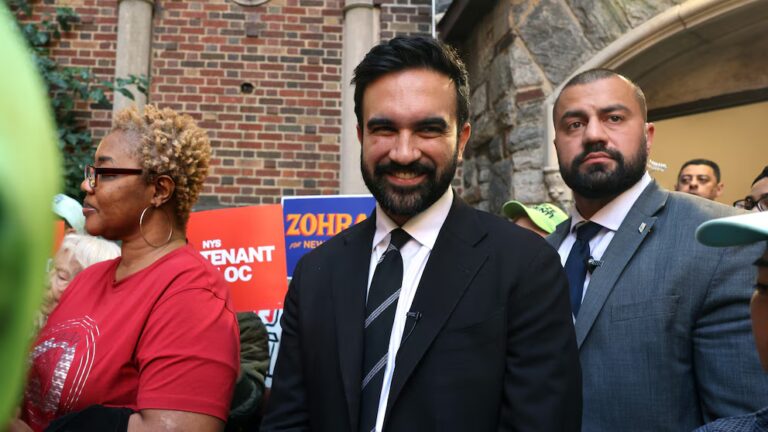
Earlier this week, President Donald Trump said that some undocumented immigrants deported from the US “aren’t people. These are animals.” The remarks quickly drew criticism — widely interpreted as Trump once again characterizing Latinx immigrants as subhuman rapists and criminals. Trump, in clarifying his remarks, later said that he was speaking solely about MS-13 gang members and that he “always will” refer to those in MS-13 as animals.
So that’s that, right? After all, who’s going to stand up for MS-13 members who are attacking and killing people across the US and Latin America? As Daily Beast reporter Lachlan Markay tweeted, “‘Actually, MS-13 gangbangers are still human beings’ is not the hill to die on.”
But there’s a compelling reason to treat these people as humans, not animals or monsters. It’s not just the moral concept that everyone deserves to be treated as a human being. Treating people who commit crimes as human beings — with compassion, understanding, and empathy — is part of what you need to do to convince them to change and persuade others in similar situations to not follow the same path to a life of gangs and crime.
That’s not just a theory. It’s demonstrated by some of the most effective policing strategies out there.
When Boston was dealing with its own major gang and violence problem in the 1990s, it deployed a response that was built largely on the idea of treating the people committing these crimes as humans. That helped produce the “Boston Miracle,” in which violent crime dropped by an astonishing 79 percent throughout the decade.
If America really wants to stop MS-13, Boston’s approach is one proven model to replicate.
To stop MS-13, understand why people join the group
People don’t become MS-13 gangbangers because they have hearts full of darkness. They do it because they face a series of incentives to do so: Perhaps in a community in which they face constant discrimination and isolation because of their immigration status or country of origin, MS-13 is one group that offers them a sense of belonging. Maybe for kids who feel lonely and unsure about their future, the group offers a sense of meaning. Or in countries with virtually no strong institutions, MS-13 can fill the gaps by giving some sense of structure.
Consider this explanation for why someone would become a “homegirl” for MS-13, from Michael Miller and Justin Jouvenal at the Washington Post:
In this context, joining MS-13 was a rational decision, a means of survival in a world that often won’t offer these girls any protection, because the government in El Salvador does not have the criminal justice institutions to do so or the government in the US just isn’t paying attention.
This is not to excuse the horrific crimes that MS-13 members often go on to commit. But you have to understand why people join violent gangs if you want any chance at stopping more people from doing it, as Boston demonstrated.
This level of understanding is at the heart of promising policing strategies
At the core of Boston’s approach was a community policing strategy known as “focused deterrence.”
Richard Rosenfeld, a criminologist at the University of Missouri in St. Louis, previously explained the two prongs of focused deterrence: “We clearly know who you are, where you live, and we’re going to do everything we can to stop the violence in this community — and if that means that we arrest and charge you with a serious violent crime, we’re going to do that. If you want out of this life, then, secondly, here are services and support that you might find useful to set a different direction of your life.”
So, yes, part of the solution is telling people they’ll face consequences if they break the law and punishing them if they commit crimes. But crucially, the model also acknowledges that people don’t fall into gangs or violence for no reason and provides social services — jobs, housing, and so on — to fill at least some of the gaps that may drive someone to commit crimes or join a gang.
Rev. Jeffrey Brown, who was heavily involved in Boston’s use of focused deterrence, said in a TED talk that the second prong was crucial to the city’s success.
“One of the biggest myths was that these kids were cold and heartless and uncharacteristically bold in their violence,” he said. “What we found out was the exact opposite. Most of the young people who were out there in the streets are just trying to make it in the streets. And we also found out that some of the most intelligent and creative and magnificent and wise people we’ve ever met were on the street, engaged in a struggle.”
The offer of social services also give legitimacy to the government and police: signaling that they’re there both to enforce the law and to try to help people out of their dire circumstances. With that trust, police are better equipped to work with the community and do their jobs, and perhaps would-be gang members realize that there are other options besides joining a gang to find a sense of purpose and protection.
“That lends a certain legitimacy to the police,” Rosenfeld said. “They’re not there to just serve warrants or warn people about what’s going to happen to them if they commit another crime but also convey a certain degree of concern for those individuals and their lives.”
This has worked beyond Boston. Study after study backs up the approach as a successful model to combat crime, not just related to gangs like MS-13 but with gun violence more broadly.
It won’t always be intuitive. It’s easy to condemn people going out and committing all sorts of horrific crimes. But at the end of the day, a humane approach is effective.
“If I really wanted the community that I was preaching for, I needed to reach out and embrace this group that I had cut out of my definition,” Brown said. “Which meant [it’s] not about building programs to catch those who are in the fences of violence but to reach out and to embrace those who were committing the acts of violence — the gangbangers, the drug dealers.”
Sourse: vox.com






